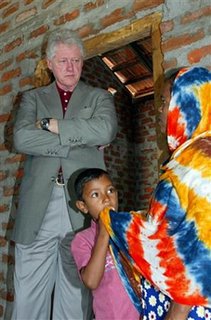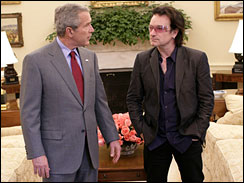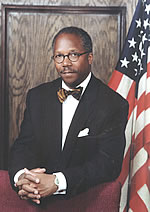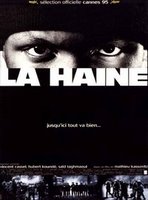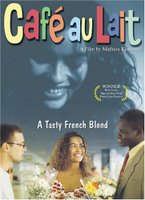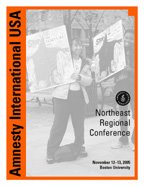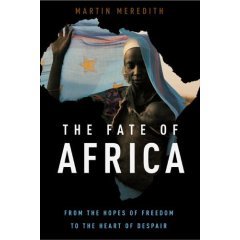Post Colonial Moment: Rt Rev John Sentamu
 The Rt Rev John Sentamu was enthroned today as the 97th Archbishop of York. He is the first black archbishop in the Church of England.
The Rt Rev John Sentamu was enthroned today as the 97th Archbishop of York. He is the first black archbishop in the Church of England.The 56-year-old Archbishop was educated in Uganda, where he practised as a barrister and was an outspoken critic of Idi Amin's regime, before coming to the UK in 1974.
He was ordained in 1979 and after serving in a succession of London parishes, he was appointed Bishop of Stepney in 1996 and Bishop of Birmingham in 2002.
Dr Sentamu has already spoken of his desire to banish homophobia from the church and said his new role in the second-highest post of the Church of England was "an exciting prospect".
I want to say to people, 'Please, please, please don't use such ghastly words,' because every human being regardless of their sexual orientation are standing in for God, each one of them is actually loved of God.
He has often attacked the Church of England for being institutionally racist.
But he has also played down his reputation as an anti-racist campaigner saying: "Yes definitely I am black but what is important is that I have got a living faith in God.
"I would like people to share my life, my faith, my hope," he said. "That, to me, is the most important."
He has indicated that he would be happy to ordain women bishops if the Church was to change its rules.
"And when you use language which implies they were not human beings who are you to do that because you did not create them?"
However, not everyone is happy about his enthronement. Upon the announcement of his appointment, he received numerous hate mail. Asked if he was angered by the letters, Dr Sentamu said: "Particularly when they put human excrement on them. I don't want to have that kind of thing," he said. "And I say to myself, why are people doing this? I want to suggest it is therefore my job to search a person, if I at all encounter them, to show them the sheer love of God. Because, you see, the gospel offers forgiveness for the past, new life for the present, and hope for the future."
